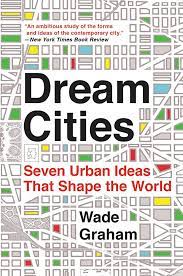We Took The “Copy” Out Of “Copyright”
Shared Article from the Guardian
Authors file a lawsuit against OpenAI for unlawfully â??ingesti…
Mona Awad and Paul Tremblay allege that their books, which are copyrighted, were ‘used to train’ ChatGPT because the chatbot generated ‘very acc…
Ella Creamer @ theguardian.com
The entire principle of copyright, and so-called intellectual property
broadly, is and always has been basically obscene, censorious, tyrannical and absurd. But nearly the entire press discussion of generative Artificial Intelligence systems in connection with the arts and literature has been characterized by a really loopy disconnection from anything approaching even the real (if awful) state of copyright law or the principles behind it. This is partly because of the usual computers are magic, this changes everything!
thoughtlessness of a great deal of tech journalism. It’s also partly because the entitled holders of copyrights have a really strong tendency, wherever there is someone to indulge their flights of fancy, towards the most ludicrous exercises of copyright maximalism. To be clear, this lawsuit would be bad and absurd enough if it were a normal assertion of copyright against, say, internet book pirates, or an attempt to police the boundaries of what’s allowed as fair use
of copyrighted material quoted for a transformative purpose.[1] But this lawsuit is ludicrous even if taken on copyright’s own terms, even if you stipulate to the whole ridiculous pseudo-propertarian structure of intellectual and literary monopoly rights.
ChatGPT does not copy books. Nobody alleges that it’s producing a copy of anything. The system reads a whole lot of books (as well as a whole lot of other English text) and it analyzes how words are used in them. It uses this to prime a system which is, among other things, good at producing original content in the same language that summarizes those books, reports on them, imitates their style, or what have you, without reproducing the original text. Maybe some authors don’t like that the AI system has read
their books. Tough luck; no law of copyright, whatever their other flaws, could be possibly read to imply a unilateral right to forbid people from reading books or from running computerized statistical analyses on their contents. Some copyright holders may be anxious or scared about what the ability of automated systems to create good summaries or reports or stylistic imitations and parodies of their work will imply about their social or economic prospects in the future, or the compensation schemes they have come to depend on. But that doesn’t make their anxieties a concern of copyright law. Copyright law was supposedly about controlling copying, not an open-ended prerogative to forbid, punish or shake down anyone who consumes the works they produce and to demand a veto over who can produces distinct, original summaries or analyses based on their contents. That’s bananas.
- [1]These allowances are usually pretty generous when it comes to literature, insanely cribbed when it comes to audio, video and photographs, and completely, wildly unprincipled and impossible to know for sure ahead of time until the copyright holder attempts to punish you with a copyright hammer.↩


![[Here's the photo of a crowded urban streetscape in 1900.]](https://d2eehagpk5cl65.cloudfront.net/img/q60/uploads/2023/07/MarketplacesFindaWay1.jpg)


